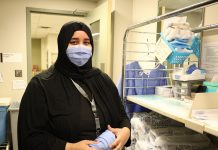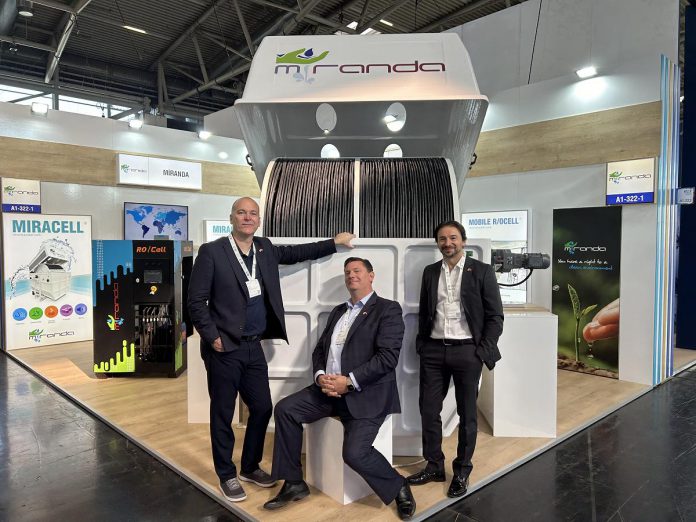
A new partnership between Miranda Water Technologies and Fleming College exemplifies why Peterborough and the Kawarthas is a world-renowned hub for excellence and innovation in watertech.
At an event at the post-secondary institution’s Kawartha Trades and Technology Centre (KTTC) in Peterborough on Thursday (October 17), Miranda Water Technologies announced a collaboration with Fleming’s Centre for Applied Machine Intelligence and Integration Technologies (CAMIIT) to develop technology for improving efficiency, sustainability, and performance in wastewater treatment.
The partnership aims to drive innovation in sustainable water management while advancing treatment and hands-on learning opportunities for students.
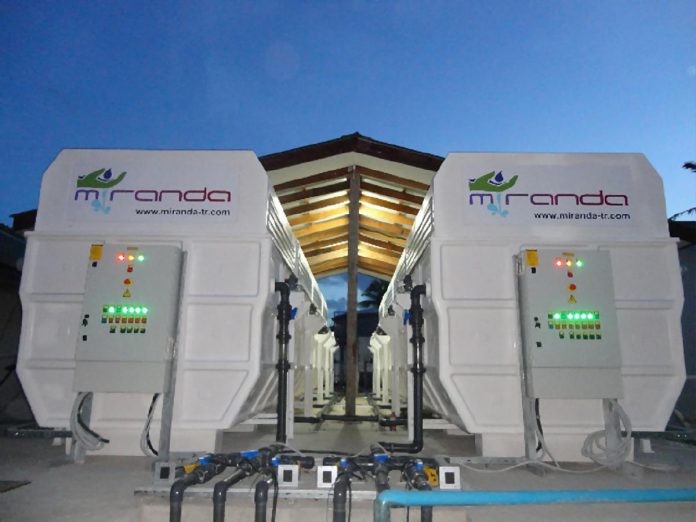
“Miranda Water Technologies is a global, established company that’s now taking its next steps in the Peterborough region with local ownership investing in the technology,” says Jamey Coughlin, Managing Director of Peterborough and the Kawarthas Economic Development (PKED). “In Peterborough, we’ve had many companies active in this space. This is something we do well, so it makes sense it’s happening here.”
Since 2008, Miranda Water Technologies has been a globally recognized leader in supporting the sustainable and environmentally friendly treatment of water and wastewater with water reuse systems for commercial and residential areas. Deployed in more than 40 countries across six continents, the company has 1,200 installations running globally, treating about 60 million litres of wastewater every day.
Originally founded in Türkiye, the majority of the shares of the company were acquired earlier this year by Peterborough investment company Viva Industries Inc. The focus of Miranda Water Technologies on re-using and repurposing biologically treated wastewater to water lawns, run irrigation systems, and clean roads, instead of using drinking water, was a large draw for Michael Skinner and Ryan Moore, Managing Partners of Viva Industries.
“They have a very strong focus on conservation, sustainability, and water reuse, so that’s the first thing that drew us to them,” says Skinner, who is also CEO of Miranda Water Technologies. “Miranda is not just cleaning or eliminating wastewater, but repurposing it.”
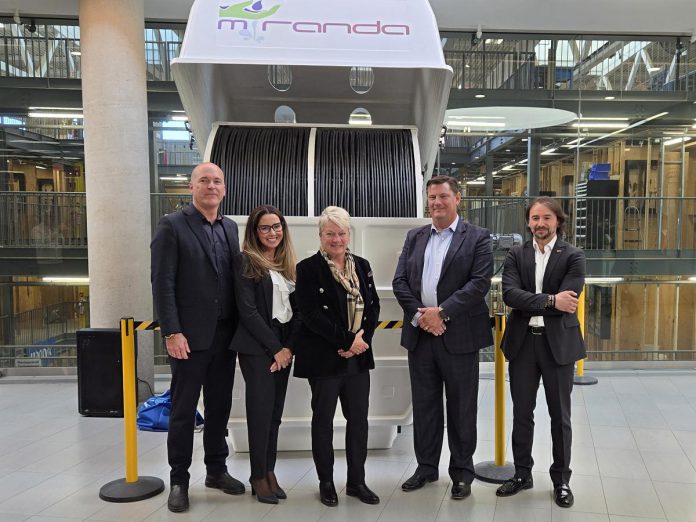
Compared to traditional centralized plants that rely on large-scale infrastructure, Miranda Water Technologies offers a modular system that can process wastewater from as few as 20 homes to as many as 1,500. The system is scalable so that, as housing projects expand over time — such as when a developer initially builds 50 homes before adding on another 100 or 200 homes in later years — new modules can be added.
“That makes it less expensive for a developer, which means those costs — or the interest on those costs — don’t get pushed down into the homeowner,” says Skinner. “If it’s not affordable for people to buy those homes, it doesn’t help the crisis we have when it comes to housing.”
In alignment with the Ontario government’s goal to build 1.5 million homes by 2031, the Eastern Ontario Wardens’ Caucus (EOWC) has developed a regional housing plan that proposes to build 7,000 community rental units to address community housing wait lists. It is likely that communal services, which provide water and wastewater treatment to clusters of residences and commercial areas, will be part of this plan.
“We have lots of land in our region, so making that land serviceable will help on housing almost immediately,” Skinner says. “There’s a huge demand for repurposing water in Ontario and, with new subdivisions going in, we can connect the output of our system to support community fire suppression as well as lawn sprinkler systems.”
While Skinner notes the housing crisis in both Canada and the U.S. means Miranda would find success anywhere in North America, Peterborough is an especially good fit for the company because the region is world-renowned for its cleantech sector. In 2018, Water Canada labelled the region as the second-largest cleantech sector in Canada and Peterborough as the second-best city in Canada — and the best in Ontario — to launch a watertech start-up.
“Water and wastewater technology has always been our sweet spot because we’re surrounded by lakes, rivers, and clean waters,” says Coughlin. “But it’s also something which both of our post-secondary institutions are centres of excellence in.”
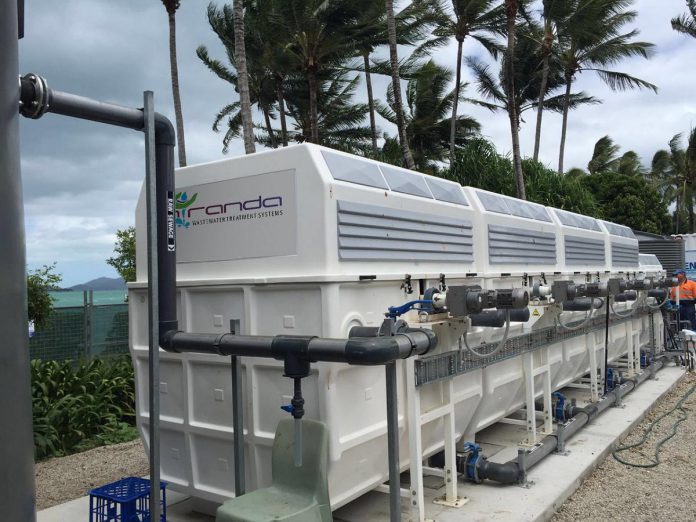
Along with the Centre for Applied Machine Intelligence and Integration Technologies, Fleming College also houses the Centre for the Advancement of Wastewater Technology (CAWT), the college’s longest-running applied research centre and the only college water research facility of its calibre in Canada. Based at the Frost Campus in Lindsay, CAWT is an internationally recognized hub for research, expertise, and resources with more than 25 accredited courses in wastewater training, inclusive of co-op training programs.
There’s also Trent University in Peterborough which, in addition to offering one of the country’s leading Environmental & Life Sciences graduate program, is the home of the award-winning Water Quality Centre, the most comprehensive mass spectrometry facility in Canada. The centre encourages and promotes award-winning research in the development and application of innovative techniques for measuring isotopes and trace amounts of contaminants in water and other environmental compartments.
“Peterborough has a really, really good reputation,” Skinner points out. “Both academic institutions are doing a lot of research internationally that’s getting great coverage, and they have great teams.”
Coughlin agrees, adding “It’s great to see another company choose Peterborough as the launch pad.”
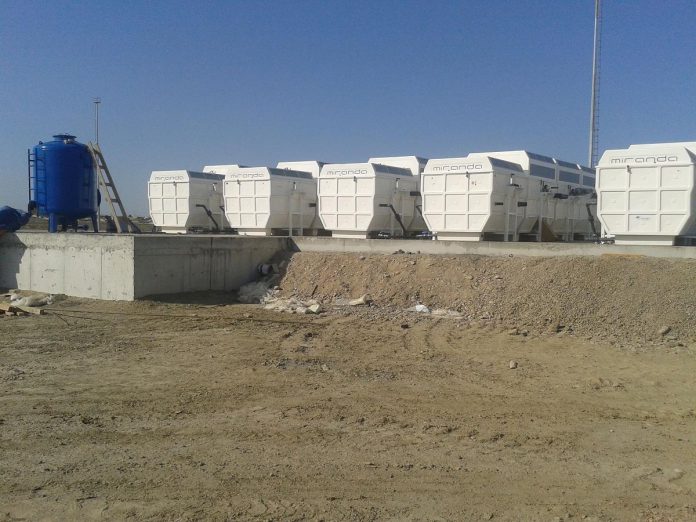
The new partnership with Fleming College will see Miranda Water Technologies leveraging CAMITT’s work in automating processes to develop a SmartCell Control Module that will enhance Miranda’s Miracell® Rotating Biological Contactor (RBC).
The module uses a series of sensors to monitor wastewater in real time, offering a timelier and more consistent analysis compared to sending samples to a lab once per month. The real-time data can also be shared with users so they know how much water they are saving and, down the line, can be used for health studies and research.
“As part of our sustainability efforts, we really want to understand wastewater and its characteristics,” Skinner says. “The module is monitoring the characteristics of the wastewater, both when it comes into our system and when it goes back out. It lets us know how much our system is purifying and cleaning it, but it’s also monitoring the overall health of the system.”
The aim is not only to deploy this innovation on new systems, but also to implement it in the 1,200 existing installations across the world — which would generate a wealth of data. Skinner notes that, while individual communities might have their own data on wastewater, he is not aware of any studies that consolidates and compares wastewater real time data on a worldwide scale.
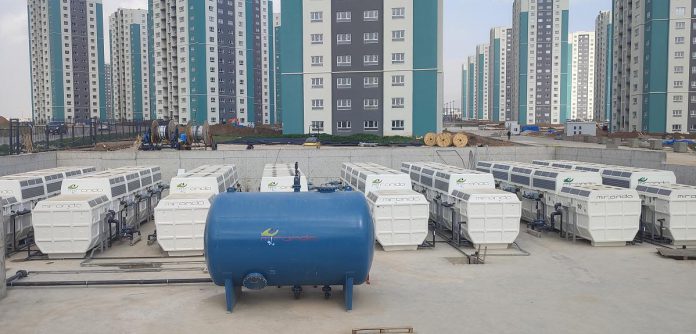
At the October 17 announcement, Fleming College President Maureen Adamson highlighted the broader impact of the collaboration.
“Partnering with forward-thinking companies like Miranda Water Technologies allows Fleming College to address critical challenges while giving our students invaluable hands-on experience with cutting-edge technologies,” she said. “This partnership exemplifies how Fleming is shaping the future of technology needed for sustainable, resilient communities.”
Skinner adds that the partnership will support student innovation and lead to success in multiple industries, as it combines IoT (Internet of Things) and wastewater management, which aren’t fields that typically go hand-in-hand.
“Individuals that work with us are going to come out having been exposed to two different and very important emerging industries,” he says. “Some of those students may not end up working for us — they may become entrepreneurs and maybe they’ll end up building an add-on piece to one of our systems — but having a strong ecosystem is really important. The more industries that are like-minded, the more that can work together for success.”
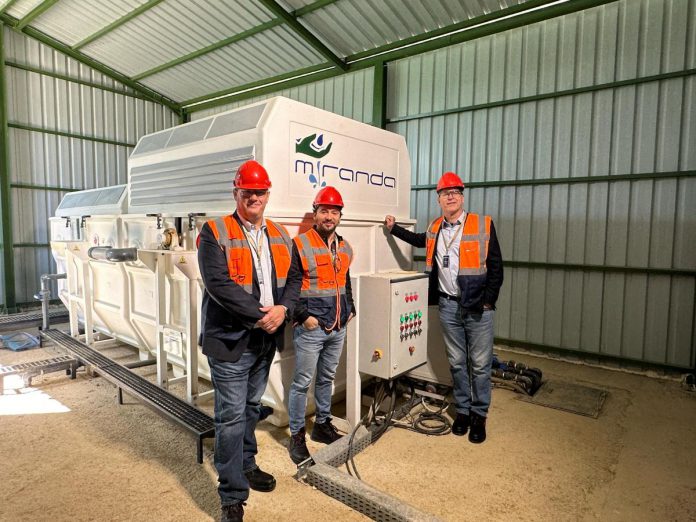
While Miranda Water Technologies manufactures its products mainly in Türkiye and partly in Brazil, Skinner explains that the “IoT and data management aspect would be the Canadian contribution.”
“The idea of making the system smart is the Canadian invention that gets set on top of the existing systems,” he says. “It all ties back to research. Peterborough makes perfect sense because we’re in close proximity to those students and faculty members that we can work with closely.”
Skinner notes the growth of watertech in the region would not be what it is without the help of Peterborough and Kawarthas Economic Development.
“They have been pushing water and green technology for a long time, and it’s their promotion that helped us identify why we can be here,” he says. “If a cleantech or watertech start-up were to launch in Canada, it makes sense to start in Peterborough.”
For more information about for Miranda Water Technologies, visit mirandawater.com.
This branded editorial was created in partnership with Peterborough & the Kawarthas Economic Development. If your organization or business is interested in a branded editorial, contact us.




